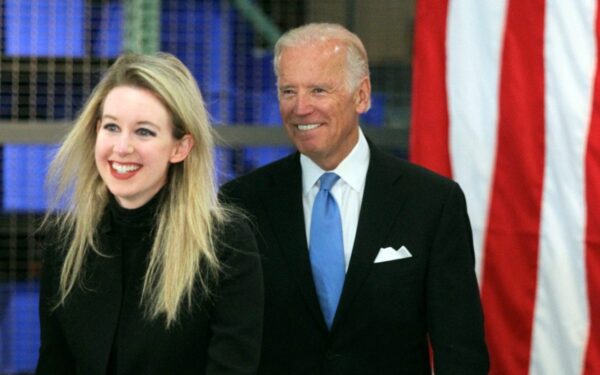Read More Breaking Marketing News
Maverick's Morning Thoughts
The (Almost) Unstoppable Marketing Force of Elizabeth Holmes and Theranos

Theranos is a great case study in the power of networking and influencer marketing notwithstanding the illicit fraud and psychopathic execution.
Theranos, founded by Elizabeth Holmes, promised to revolutionize blood testing with technology that could conduct comprehensive tests with just a few drops of blood and a tiny machine: the "Edison."
The company soared to a valuation of $9 billion due to its compelling vision, aggressive networking, and influential board members, despite keeping its technology secretive.
However, investigations revealed that the technology was flawed and incapable of performing as promised, leading to a massive public and legal fallout.
The revelations dismantled the company's credibility, led to charges of massive fraud, and eventually culminated in its dissolution, marking one of the most dramatic collapses in Silicon Valley history.
While the company's journey was fraught with ethical and legal lapses, its initial ascent provides critical insights into how businesses can strategically leverage relationships and persuasive narratives to gain market traction.
Let's take a look at the strategic networking and influencer marketing maneuvers employed by Elizabeth Holmes and Theranos, extracting pivotal lessons for businesses aiming to ethically and effectively navigate these realms.
To start, Holmes had the uncanny networking talent to forge one good relationship with one influential individual into serval.
This is how she found and selected her board for Theranos.
However, she didn't just sit at the office making calls, she hit the streets, banged on doors, and met with any potential investor that would speak to her.
People often have this vision of fraudsters being lazy--they picture a fat millionaire puffing cigars with his feet on top of his desk--but that isn't always true. Holmes WORKED, and she worked very hard at networking. Are you?
The board Holmes assembled for Theranos was a testament to her strategic networking, featuring an array of influential figures from various domains.
The selection of these individuals wasn't merely for their stature or contribution to the science of the Edison, but for their potential to open doors to investors, partners, and customers.
Fundamentally, the board was assembled primarily to market the product rather than to enhance decision-making about its functionality, all aimed at maximizing shareholder profits.
For businesses, the lesson is clear: networking should be intentional and strategic.

Following significant exposés that cast doubt on the company's legitimacy, Elizabeth embarked on an assertive speaking campaign. This tactic adeptly embodied one of the "48 Laws of Power": "Do Not Build Fortresses to Protect Yourself – Isolation is Dangerous."
It's about quality and alignment of connections, not just quantity. Identify and foster relationships with individuals and organizations that not only believe in your vision but can also facilitate its realization. Find people invested ion your story, and not just profits.
Holmes's narrative was not just compelling; it was visionary.
She sold a future that many aspired to see. For her, it was about preventing disease instead of responding to them.
In doing so, she tapped into the powerful psychology of storytelling.
For modern businesses, the takeaway is to craft narratives that don't just sell a product or service, but that encapsulate a larger vision or mission.
However, unlike Theranos, ensure that your narrative is grounded in reality and achievable capabilities.
Authenticity should be the cornerstone of your storytelling, backed by tangible evidence and transparent communication.
Needless to say Holmes story wasn't just persuasive, it was attention-grabbing.
In fact, even her outfit was attention-grabbing. Holmes adopted a wardrobe reminiscent of Steve Jobs, yet beneath this emulation, I detected an even more ambitious and deeply sinister motive.
The book "How to Rule Over The World" observes that many renowned leaders adopted a distinctive uniform for public appearances.
This ranged from figures like Hitler, Stalin, Mao, Castro, to Gaddafi, suggesting that a consistent personal "uniform" can evoke a perception of almost superhero-like, or conversely, villainous stature, ingraining a powerful, enduring image in the public psyche. And it worked.
Commentary on Elizabeth's attire was an attention-grabbing marketing campaign in and of itself.
To your success!

DOMINATE and WIN with MAVERICK
Learn how to use marketing to get whatever you want.